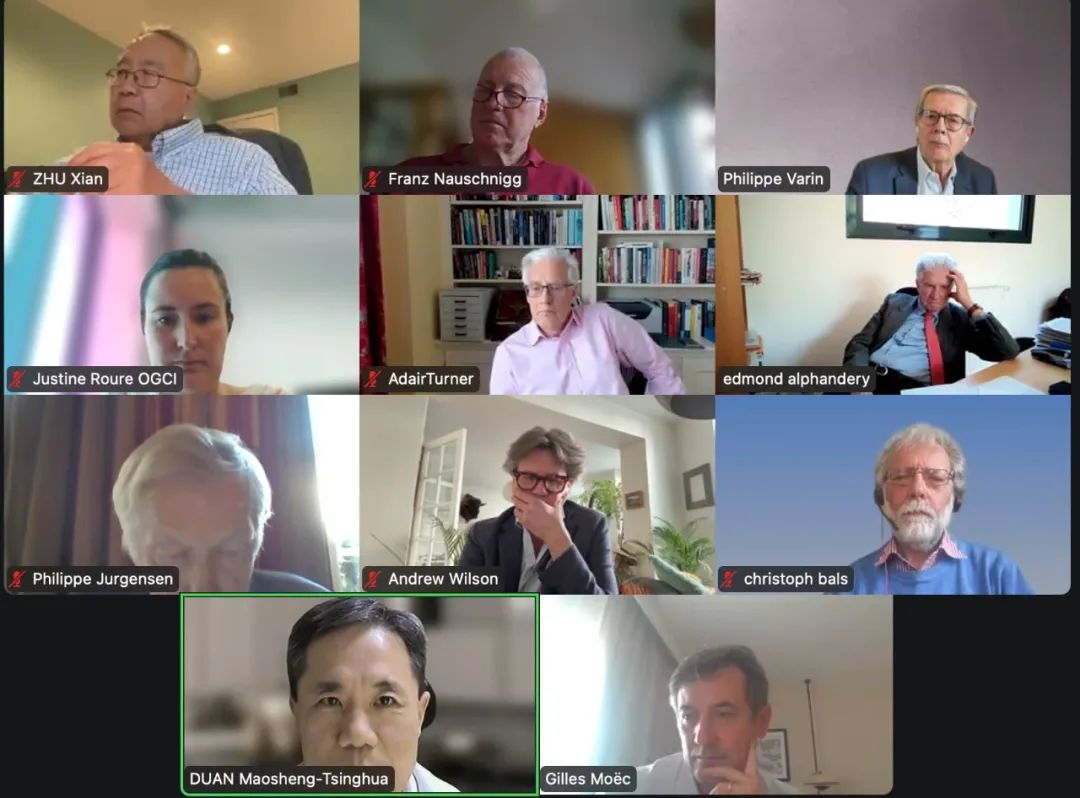HOME>NEWS CENTER>Press Releases
IFF reavows its fight for climate justice amid new geopolitical terrain
AUTHOR:IFF
FROM:IFF
TIME:2025-04-29

The International Finance Forum (IFF) held a conference on April 11 dedicated to redoubling efforts in the fight against climate change amid the new geopolitical realities, in particular, to counter the radical, anti-science stance adopted by the present United States presidential administration.
Themed ‘The Fight Against Climate Change in the New Geopolitical Environment,’ the three-hour event the IFF jointly hosted with the Task Force on Carbon Pricing in Europe and the Institute for Governance & Sustainable Development (IGSD) convened a host of luminaries in the fields of economics, environmental sciences, and finance and investment to present a kaleidoscopic compendium of the depth and complexity of the current situation. Myriad issues and their manifold potential mitigation measures - corporate, economic, financial, governmental, societal, and technological among them - came under discussion.
Edmond Alphandéry, Chairman of the Task Force on Carbon Pricing in Europe, noted that more carbon dioxide is now present in the atmosphere than at any time in the last 800,000 years. The return to office of US President Trump further darkens already gloomy prospects, Alphandéry said. The 1.5 Celsius target is already “in the rear-view mirror,” he added, and achieving 2.0 Celsius is thus the unfortunate fallback target.
ZHU Xian, IFF Executive Vice President and former Vice President of the World Bank, stated that hope for change had dawned a decade ago when the Paris Agreement was negotiated, but that progress since then has stalled. If humanity’s unchecked carbon emissions do precipitate an extinction event, it will be the first driven by a single species, one to which humankind may also fall victim. Inaction in the face of reaction is thus tantamount to a dereliction of duty to future generations who will reap the whirlwind the current one has sown, Zhu stated, adding that the IFF stands united with its colleagues, unyielding in their resolve to defy all adversity to achieve their quest for climate justice.
Durwood Zaelke, Founder and President of the Institute for Governance & Sustainable Development (IGSD), said that speed is imperative, since decarbonization only adds to warming for the first decade. The ozone layer is recovering, he noted, and the Montreal Protocol which a previous US Republican administration drafted and signed to lessen use of ozone-depleting substances (ODS) has also had the fortuitous, adventitious effect of reducing atmospheric carbon more than decarbonization has hitherto accomplished.
“Better, faster, and together” Is how Laurent Fabius, President of Paris COP21 and Former Prime Minister of France, encapsulated the spirit of Paris. Science, civil society, and government have all lagged thus far, he said, as last year logged the highest temperatures ever recorded. Fabius cited technological advances, and the upcoming COP30*as bright spots however.
Lord Adair Turner, Chairman of the Energy Transitions Commission, called on China and Europe to fill the void left by the US’ withdrawal from the Paris Agreement. China is by now the biggest carbon emitter, he said - in total and per capita - and so needs to lead by example. The country’s contribution to pioneering renewables is, however, peerless, and China’s science, tech, and entrepreneurship are worthy of commendation, while Europe must play catchup.
International financial reform is needed to hasten realization of the United Nations Sustainable Development Goals and all countries have the responsibility to jointly develop emissions mitigation technology as a human commons, said Prof HUANG Jing, Director of Center for American and Pacific Studies at Shanghai International Studies University (SISU).
The Zeitgeist has changed, and climate concerns are now absent from US financial institutions, according to Domenico Siniscalco, Managing Director and Vice Chairman at Morgan Stanley, Former Member of the IPCC, and Former Minister of the Economy of Italy, who denounced Trump’s policies as “short-sighted and catastrophic.”
Carbon pricing also came under the lens. Several speakers deemed it essential, and urged the need for private carbon markets. William L'Heudé, Deputy Head of Climate Unit at the French Treasury, remarked that carbon pricing markets are slowly spreading worldwide, while Alphandéry invoked the substitution effect - a basic principle of economics per which shifts in consumption patterns generally favor more affordable alternatives - as one function of carbon pricing that will propel a transition to renewables.
The wide-ranging discussions continued as speakers highlighted the need to cut methane emissions, and for data centers in the US to power themselves with natural gas as the prices of renewables rise from Trump’s tariffs, while others underscored the need to make green technologies more attractive to investors.
The conference was thus a prism refracting every facet of the climate crisis. To view the entire event, please visit: https://m.youtube.com/watch?v=vMej3L_cVag